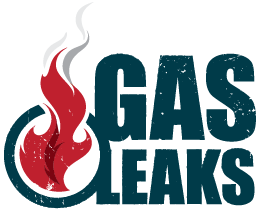
In November 2022, a gas storage field in Pennsylvania sprung a leak. By the time it was plugged two weeks later, it vented more than 1.4 billion cubic feet of methane gas straight into the atmosphere. Given that methane is more than 80 times as potent a greenhouse gas as carbon dioxide, that’s the equivalent of a year of emissions from 261 coal plants — enough pollution to wipe out the climate benefits of half the electric vehicles sold in the US in 2021!

That a single methane leak could do this much climate damage illustrates the immense climate threat of “natural” gas — a fuel that the fossil fuel industry spent decades advertising to the public as “clean.” These kinds of leaks are an unavoidable part of the gas system, and when they’re taken into account they mean that “natural” gas is just as bad as coal when it comes to the climate crisis.
Methane leaks all the time
The incident raises concerns about methane leaks from aging gas storage facilities around the country, not to mention the sprawling network of more than 3 million miles of gas pipelines or the gas appliances in our homes. The industry currently self-reports methane leaks and consistently lies about the extent of the problem.
Last year Stanford University researchers flew planes over gas drilling sites in the Permian Basin and found that more than 9 percent of methane is released into the atmosphere — six times more than the industry had been reporting to the Environmental Protection Agency.
The gas industry won’t clean up their act
But it’s not just accidental leaks. The fracking industry, gas pipeline operators and gas export facilities routinely release methane on purpose, often because it’s necessary to release excess pressure and maintain the safety of the gas system. As long as we continue to use “natural” gas, we’ll be adding planet-warming methane to the atmosphere.
The industry likes to talk about how they want to reduce methane leaks from the gas system, but they’re also currently fighting against EPA efforts to increase oversight of methane emissions. And Republicans in Congress are working to repeal a modest fee passed in the Inflation Reduction Act that would make companies pay for their methane pollution, creating more of a financial incentive to reduce leaks. Even a little bit of accountability for their pollution is too much for the fossil fuel industry.
Mountain Valley Pipeline developer responsible for climate disaster
The owner of the Pennsylvania storage field that leaked is Equitrans — the same company pushing the controversial Mountain Valley Pipeline through environmentally sensitive habitat and communities of color in West Virginia, Virginia and North Carolina. This company took close to two weeks to plug a huge hole in their system, which single handedly set back the United States’ climate progress; why should they be trusted to build and maintain a new 303-mile long pipeline through mountainous terrain prone to landslides?
The science is clear: we’ve got a huge methane problem on our hands, and the continued use of “natural” gas only makes it worse. It’s time to make the industry clean up its act and urgently transition to away from polluting gas and towards clean electricity.

